How Eman Mohammed fought misogyny to become Gaza's first female photojournalist
- Text by Andrea Kurland
- Photography by Eman Mohammed

Eman Mohammad can’t talk right now. She’s in Kansas City, where she now lives with her husband and two daughters, and has had to rush to the hospital. Lateen, her youngest, is having a few complications again, and these trips to the doctor have become something of a recurring theme ever since the family left Gaza in August, 2014, at the height of a summer of violence. By the time they had settled in the States, and Israel and Hamas had called a tentative truce, 2,200 people had been killed (2,139 Palestinians) and 500,000 Gazan residents displaced over the course of a fifty-day war.
But when the fighting erupted, Eman was on the frontlines. She’d been working as a photojournalist for years, and as the only female Gazan in the field, had fought greater battles than a mortar attack – so why would she stop now? But then things went from bad to worse at home and she was forced to make a decision. “My daughter started bleeding internally after an attack near our house,” says Eman, when we eventually catch up on the phone. “That bleeding got infected, and that infection caused a tumor. She was barely two. And because my husband grew up in the States, we came here to get medical attention.”
It wasn’t the first time Eman has stared down the tough choice between leaving or staying put.
When she was nineteen, Eman got a job at a news agency in Bethlehem and started enquiring about what it would entail to leap from reporting to photojournalism. Her colleagues were perplexed. “They said it would bring shame,” says Eman. “‘How can we have a woman photojournalist covering funerals and air strikes and going away for days? This is a risky job so how will she have children?’ I saw it as a challenge game when all my colleagues gave me advice not to get into this field. It seemed ridiculous, like why?”
Eman persevered and eventually her boss conceded, albeit in the most condescending way, by giving her a broken camera. His dire underestimation became her big break. “I knew nothing about cameras but I just played with it and it worked.” She started filing images alongside her reports – and in turn comments were flung her way. “My boss started to get more and more remarks from his colleagues: ‘How can you hire someone who wears these jeans and bends over to take a photo,’” says Eman. “Eventually he took that camera, put it in a closet, locked it with a key and said, ‘If you can open this then you can take it.’”

Frustrated, but not surprised, Eman walked out. “I had no labour law to protect me but I had enough money to buy my own equipment. I got a camera and two lenses and three weeks later the first war broke out. And that’s when my colleagues decided to teach me a lesson.”
In 2008, Israel launched attacks on the Gaza Strip with the stated aim of suppressing rocket fire from Hamas. One day, as fighting peaked, Eman was offered a lift by three colleagues who said they were going to cover a story. When they got to their destination, Eman got out the car and the three men promptly drove off, waving and laughing. “They had left me in an open air-strike zone,” says Eman, over a crackly phone line. In a TED talk she gave about the event, she goes a step further: “The explosions were the only thing I could hear. Dust was flying in the air. And the ground was shaking like a swing.” Disoriented, Eman sought help from a passerby and ended up being sexually harassed. “It was too much to take in the space of one hour,” she says. “I thought I can either survive this or perish. It created a strong reaction. If you poke someone you will get their attention, but they didn’t stop at poking me – they hammered me on the head. So they created this reaction where you want to stay and fight.”
The trauma and disappointment that Eman experienced that day galvanised her in a new direction. She continued to document the fallout of that war – and the war that followed that, despite being eight months pregnant. Over time, she turned her focus to the stories that go unseen – the long, painful aftermaths that families endure, and the hidden lives of Palestinian women. “I know my community has issues,” says Eman. “Occupation is not the only thing we need to fix.”

As the only female photojournalist in Gaza, Eman has used the very thing that others said would hold her back to document some of Palestine’s most urgent stories. Shooting women in prayer, mothers and daughters in mourning, she’s captured moments that male colleagues never see. She’d like to see more women follow in her footsteps, but offers only cautious encouragement. “It’s much more complicated than it looks,” says Eman, who credits her strong single mother as her inspiration. “The most complicated issue facing women who want to be photojournalists is the male-dominated way of thinking. If you’re sexually harassed, not a single person in Gaza will talk about it. They live with it, they will live in shame. But I did talk about it. I warned other women trying to get into this field. Once I felt okay with being known as a female photographer, I felt proud and people started saying why am I the only one. It became more shameful to say, ‘Women are not allowed’, and things started to change. We have some documentary filmmakers, artistic photographers, but we still don’t have photojournalism as a profession for women – and we need to talk about it.”
Eman never really left Gaza. She battles through complex border control to cover Palestine’s ongoing story, but has to be based in the US for now while her daughter seeks help. If there’s one thing that keeps her going, though, it’s finding those universal stories of survival. When she puts down the phone today, Eman will continue editing her latest project – a multimedia portrait of survivors around the world, from victims of the Armenian genocide to people who walked away from 9/11. The real story of conflict, Eman reflects, is not always on the frontlines. “If people focus on destruction than that is what you are going to believe in your soul,” she says. “We are neglecting the inspiring ways to move on. I want the message of war to be known so that people recognise it, feel it, and really understand; understand that this should never happen again.”
This article originally appeared in Huck’s Fiftieth Special, a collection of fifty personal stories from fifty inspiring lives. Grab a copy now to read all fifty stories in full. Subscribe to make sure you don’t miss another issue.
Latest on Huck

Three decades behind the scenes of the music industry
Eddie Otchere’s ‘Spirit Behind the Lens’ is a story of music and culture that crosses and transcends borders.
Written by: Isaac Muk
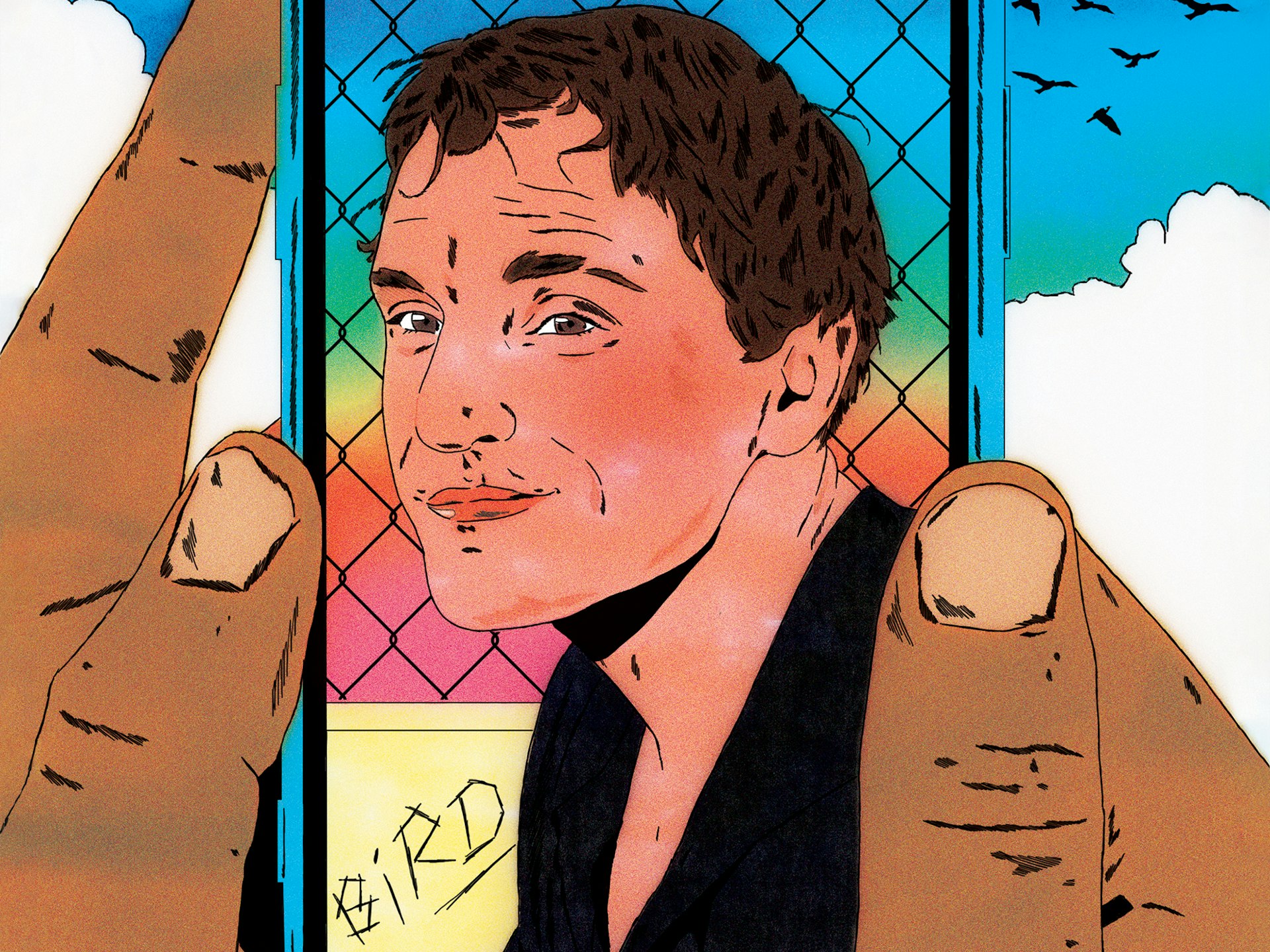
Barry Keoghan, Franz Rogowski and Andrea Arnold on ‘Bird’
The new issue of Little White Lies brings Andrea Arnold’s sixth feature to life with a thematic voyage down the Thames estuary.
Written by: Maisy Hunter
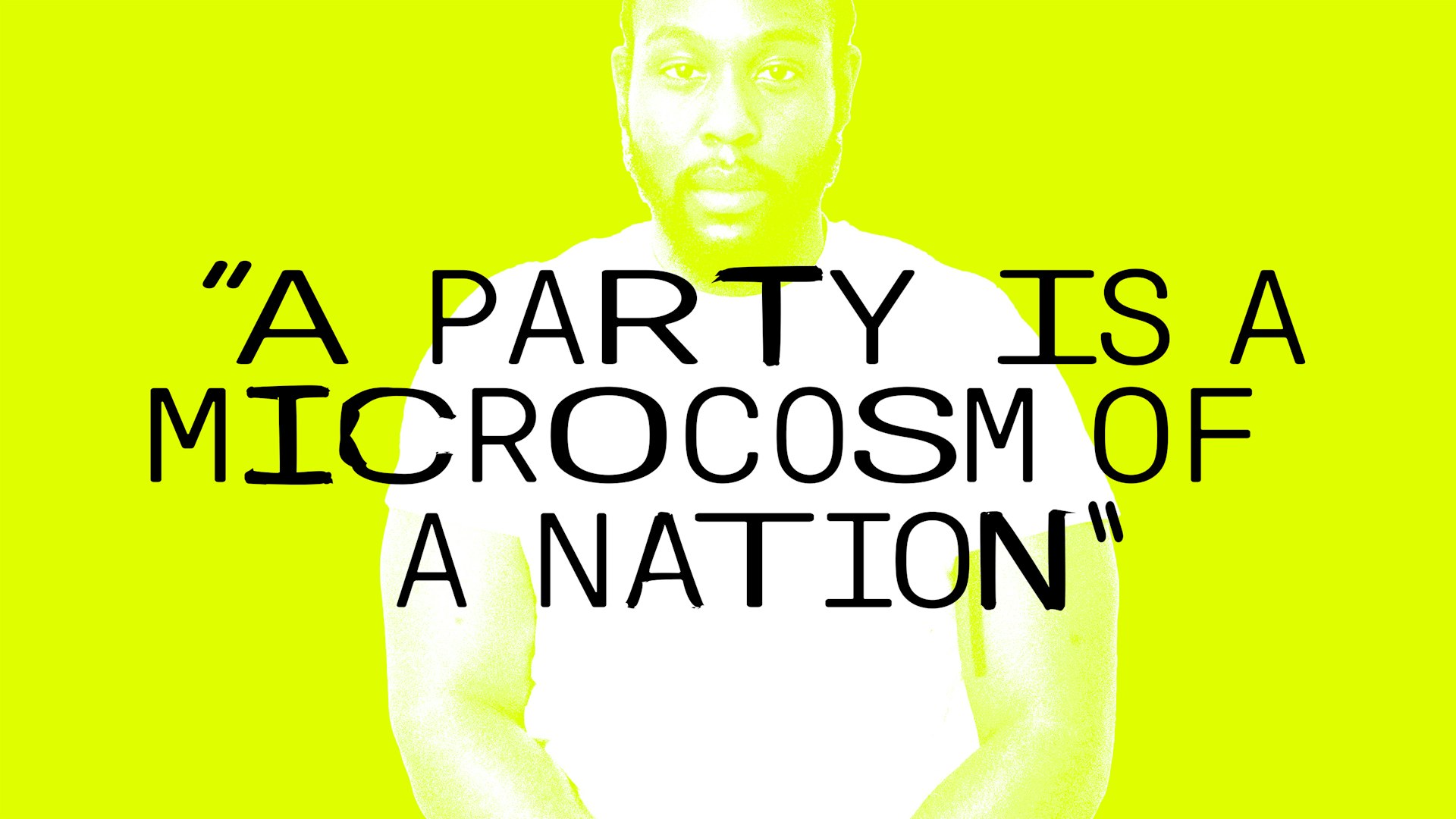
“A party is a microcosm of a nation”: Caleb Femi on the decline of the house party
To celebrate the publication of his new collection ‘The Wickedest’, Isaac Muk caught up with Femi to talk more about the work, the future of the shoobs, and discuss why having it large on a Saturday night should be cherished.
Written by: Isaac Muk
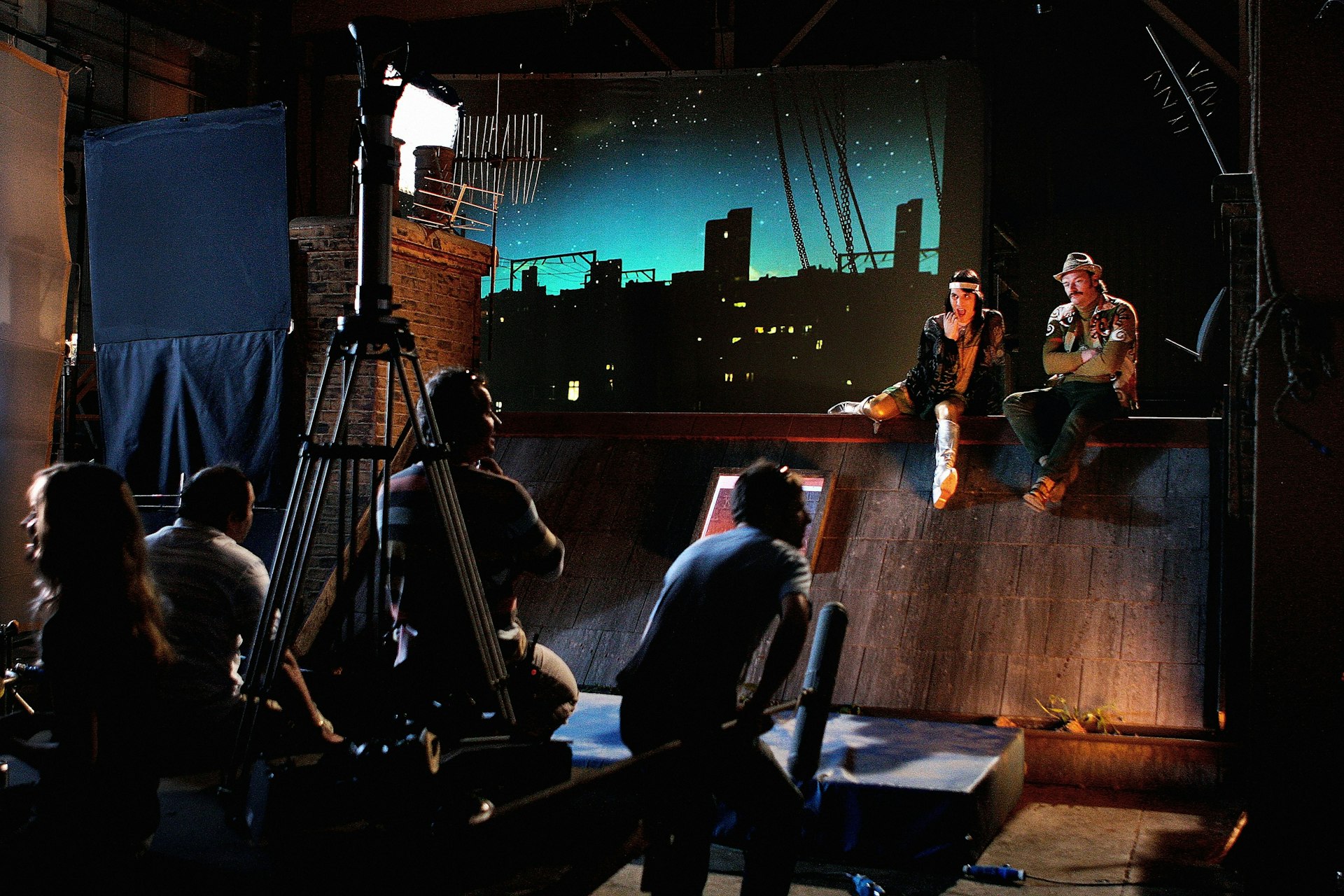
Celebrating 20 years of The Mighty Boosh
A new exhibition takes a look behind the scenes of the iconic show two decades after its BBC3 premiere.
Written by: Isaac Muk
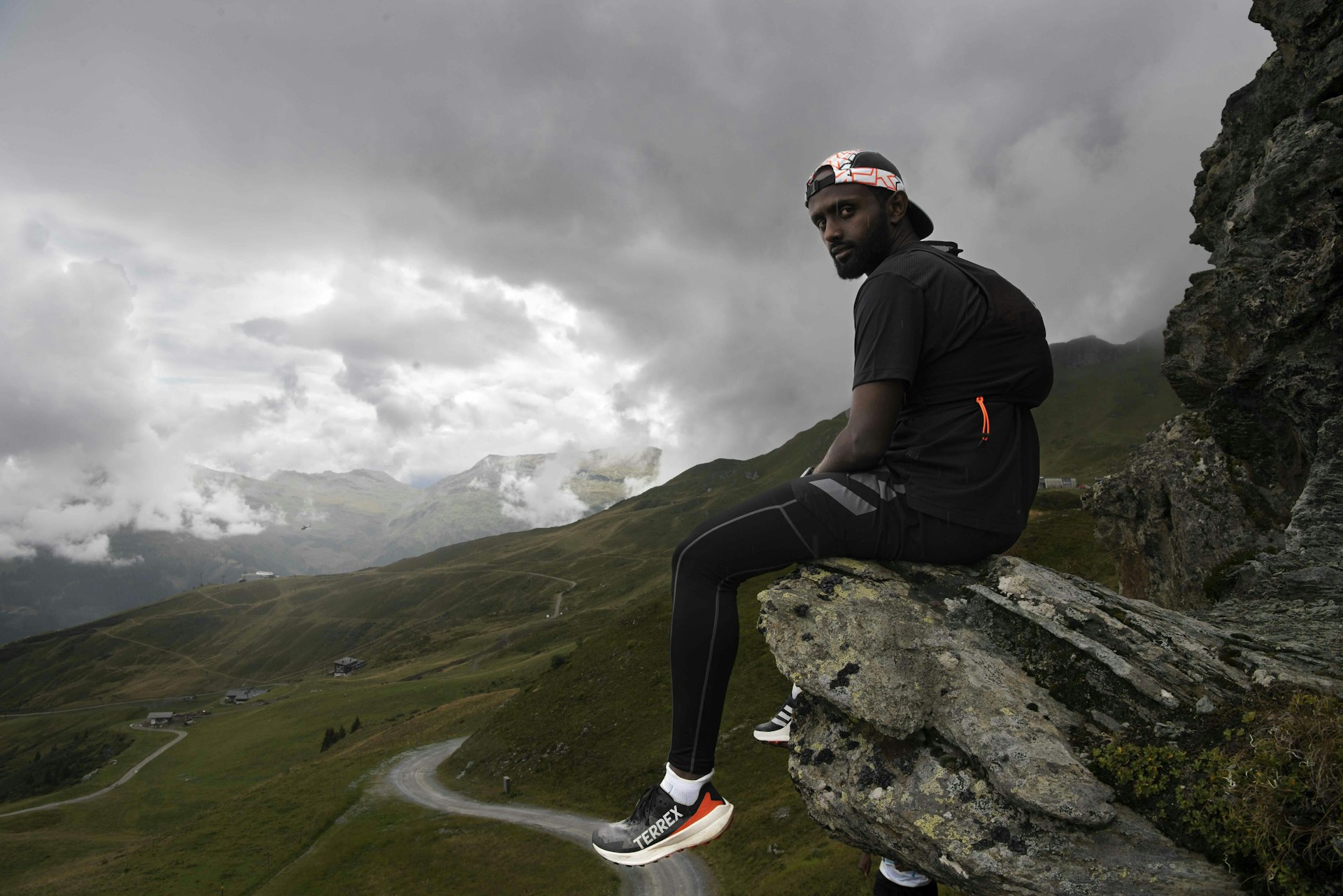
We Run Mountains: Black Trail Runners tackle Infinite Trails
Soaking up the altitude and adrenaline at Europe’s flagship trail running event, high in the Austrian Alps, with three rising British runners of colour.
Written by: Phil Young
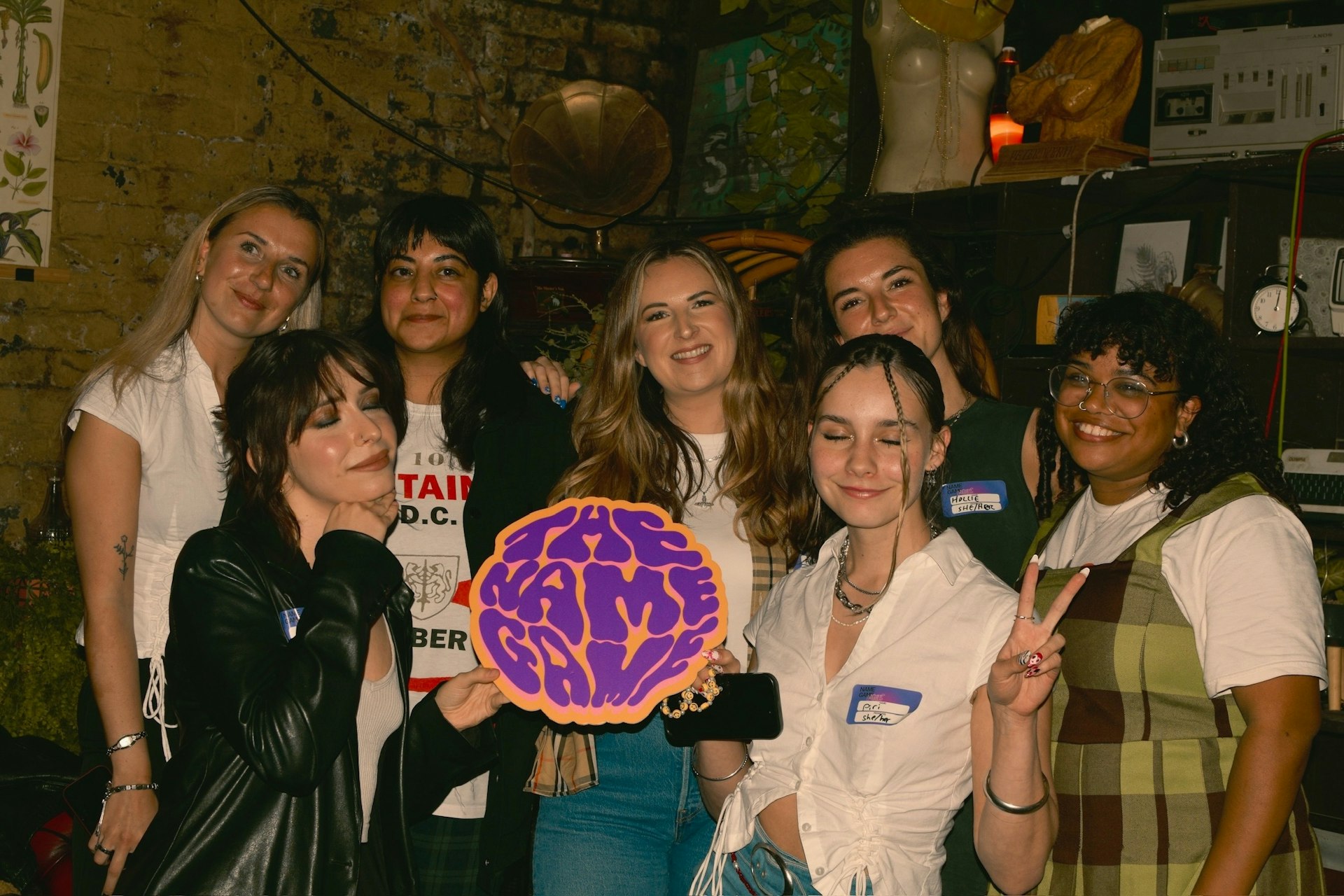
The organisation levelling the playing field in the music industry
Founded in 2022, The Name Game is committed to helping female, non-binary and trans people navigate the industry.
Written by: Djené Kaba